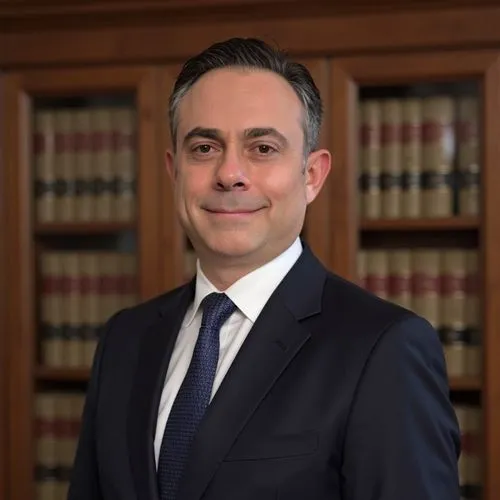The Evolution of New York’s Grieving Families Act: A Renewed Push for Change

New York’s wrongful death statute has long been a subject of debate. Under the current law, compensation for wrongful death is primarily limited to economic damages, such as lost wages and financial support, with no provision for emotional damages. Unlike many other states, New York does not allow families to recover for grief, pain, and suffering.
In an effort to modernize this nearly 180-year-old law, lawmakers have repeatedly introduced the Grieving Families Act, seeking to expand the scope of recoverable damages and redefine who can bring a wrongful death claim.
Current Law and Limitations
Under N.Y. Est. Powers & Trusts Law § 5-4.1, only a child, parent, spouse, or the personal representative of the deceased person’s estate may file a wrongful death lawsuit. Extended family members, such as siblings or grandparents, are generally barred from bringing a claim unless named as the estate’s representative. Additionally, wrongful death lawsuits must be filed within two years of the decedent’s passing, with certain exceptions, such as cases involving medical malpractice (two and a half years) or pending criminal cases related to the death (one year from the conclusion of the criminal case).
Most notably, New York’s wrongful death statute does not permit families to recover damages for grief, emotional anguish, or loss of companionship. Instead, damages are limited to pecuniary losses, including medical expenses, funeral costs, and the economic value of parental guidance for surviving children. While many states have already reformed their laws to allow compensation for emotional distress, New York remains one of the few that does not.
Past Legislative Efforts: The 2022 and 2023 Versions
In 2022, both houses of the New York Legislature overwhelmingly passed the Grieving Families Act, expanding the scope of wrongful death claims. However, Governor Kathy Hochul vetoed the bill, citing concerns over its broad plaintiff eligibility, retroactive application, and unlimited damages, which she feared could significantly increase costs for businesses, hospitals, and insurers.
In response, lawmakers introduced a revised version in 2023 that attempted to address the governor’s concerns. This version:
- Limited eligible plaintiffs to spouses, domestic partners, children, stepchildren, parents, grandparents, siblings, and individuals acting in loco parentis to the deceased.
- Extended the statute of limitations from two years to three years from the date of death.
- Allowed recovery for emotional damages, including grief, loss of companionship, and mental anguish.
- Applied retroactively to claims arising from deaths occurring on or after July 1, 2018.
Despite these revisions, concerns remained about the bill’s potential impact on insurance premiums, healthcare costs, and litigation expenses. As a result, Governor Hochul vetoed the bill a second time, calling for further modifications.
The 2024 Update: A Renewed Push for Reform
In June 2024, lawmakers introduced yet another version of the Grieving Families Act, hoping to finally secure Governor Hochul’s approval. The new proposal further narrows the definition of eligible plaintiffs, limiting claims to:
- Spouses or domestic partners of the deceased.
- The decedent’s distributees (those legally entitled to inherit under intestacy laws).
- Individuals acting in loco parentis to the decedent, and vice versa.
Notably, this revision excludes stepchildren, step-grandchildren, and step-grandparents, who were included in the 2023 version. Additionally, while Hochul previously proposed reducing the statute of limitations back to two years, the latest bill retains the three-year limit set in the 2023 version.
Despite these adjustments, the bill still faces opposition from business groups, insurance providers, and healthcare institutions, who argue that expanding damages could lead to higher liability costs and increased insurance premiums. Supporters counter that the bill would finally bring New York in line with most other states, ensuring families receive just compensation for their loss.
What’s Next?
Governor Hochul has previously expressed willingness to negotiate, and lawmakers hope that the latest revisions will lead to a signed agreement. As discussions continue, the future of the Grieving Families Act remains uncertain, but the push for wrongful death reform in New York is stronger than ever.
Final Thoughts
The latest effort to pass the Grieving Families Act represents a significant step toward modernizing New York’s wrongful death laws. If passed, the bill would provide long-overdue recognition of the emotional toll that losing a loved one can have on families. However, the balancing act between ensuring justice for grieving families and managing financial risks for businesses and insurers remains a contentious issue. As this legislation progresses, it will be crucial to watch how lawmakers and Governor Hochul navigate these competing interests.
Sources:
1. Statutory References:
- N.Y. Est. Powers & Trusts Law §§ 5-4.3, 5-4.4 (2021)
- N.Y. C.P.L.R. § 214-a (2021)
- New York Pattern Jury Instructions 2:320 (Thomson 2009)
2. Legislative Documents:
- Senate Bill S74A (2022)
- A06998/S06636
- NY State Assembly
3. News & Opinion Pieces:
- Hochul to Legislature: Let’s agree on helping grieving families before today’s midnight deadline
- Amended again, Grieving Families Act set to pass and seek Hochul’s approval
- Will Hochul veto the Grieving Families Act for a third time?
Disclaimer: This blog post is for informational purposes only and does not constitute legal advice. Personal injury laws vary by state and depend on the specific details of each case. If you have questions about your legal rights or options, consider consulting a qualified attorney to discuss your situation.



